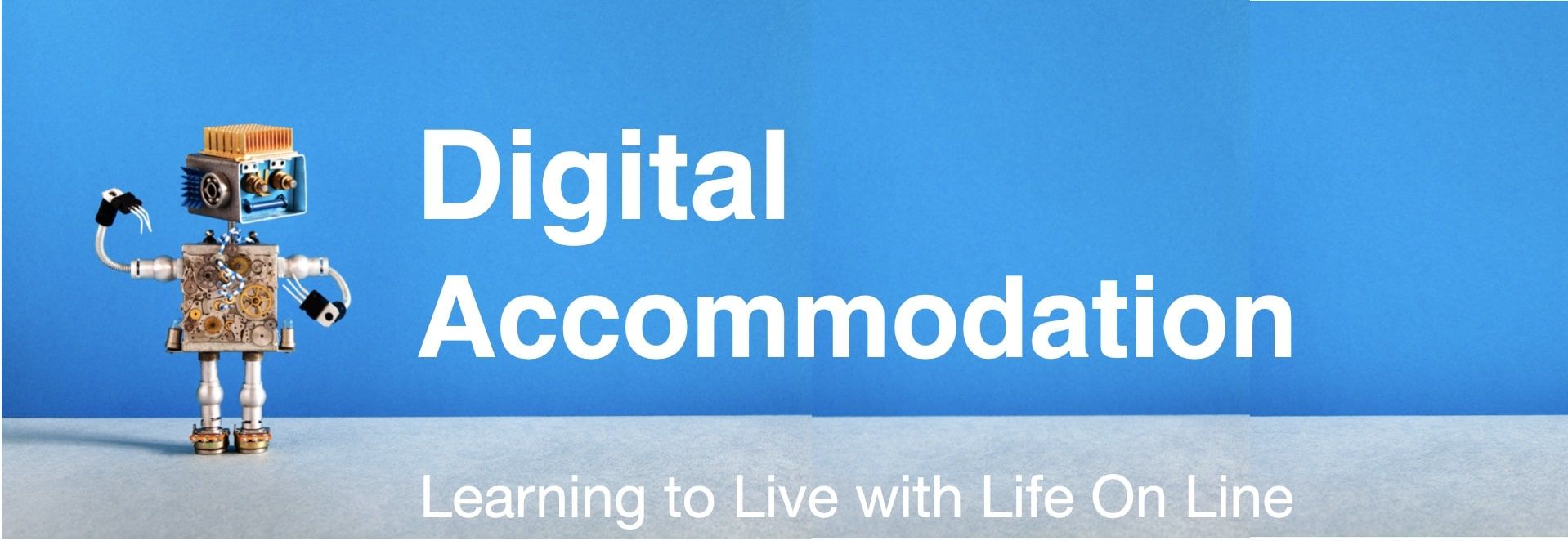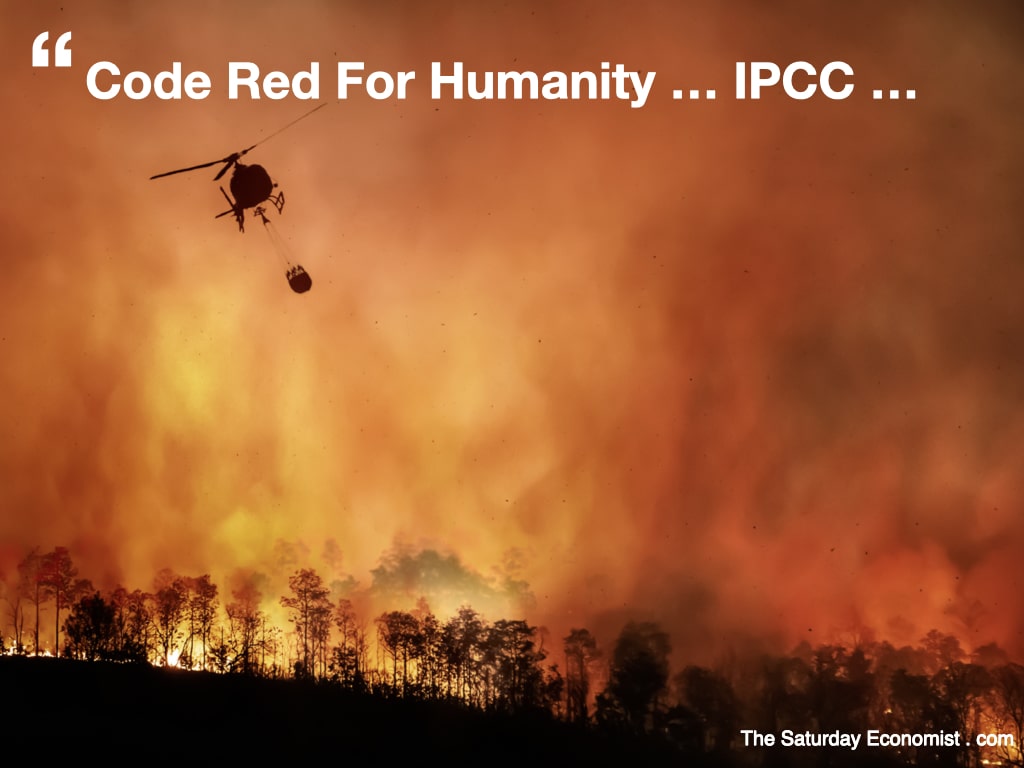|
It’s a Code Red for Humanity. Human activity is “unequivocally” warming the atmosphere, oceans and land.
The findings of the report from the UN’s intergovernmental panel on climate change (IPCC) are endorsed by 195 governments around the world. Human activity has led to a 1.09C rise in the global surface temperature when comparing the average temperature between 2011 and 2020 to the average between 1850 and 1900. The past five years have been the hottest on record since 1850, the report notes, adding: “Each of the last four decades has been successively warmer than any decade that preceded it since 1850. The report is clear in stating that “observed warming is driven by emissions from human activity”. It warns: “The scale of recent changes across the climate system as a whole and the present state of many aspects of the climate system are unprecedented over many thousands of years.” The evidence is clear that carbon dioxide (CO2) is the main driver of climate change, even as other greenhouse gases and air pollutants also affect the climate. Methane gas is also a significant contributor to global warming. “This report must sound a death knell for coal and fossil fuels before they destroy our planet” said UN Secretary General Antonio Gutterres. Extreme weather … Human activity is leading to an increase in extreme weather all over the world and will lead to an “increasing occurrence of some extreme events unprecedented in the observational record”. “Human-induced climate change is already affecting many weather and climate extremes in every region across the globe,” the report states. “Evidence of observed changes in extremes such as heatwaves, heavy precipitation, droughts, and tropical cyclones, and their attribution to human influence, has strengthened.” The world has been experiencing an increasing number of “hot extremes” and “heavy precipitation events” over the past 70 years, it notes. “It is virtually certain that hot extremes (including heatwaves) have become more frequent and more intense across most land regions since the 1950s, while cold extremes (including cold waves) have become less frequent and less severe, with high confidence that human-induced climate change is the main driver of these changes,” the report notes. “Some recent hot extremes observed over the past decade would have been extremely unlikely to occur without human influence on the climate system.” Scientists also found that the “frequency and intensity” of heavy downpours has increased since the 1950s and states with medium confidence that: “Human-induced climate change has contributed to increases in agricultural and ecological droughts in some regions.” Action needed … Stabilising the climate will require strong, rapid, and sustained reductions in greenhouse gas emissions, and reaching net zero CO2 emissions. Limiting other greenhouse gases and air pollutants, especially methane, could have benefits both for health and the climate. Scientists set out five scenarios, ranging from a best case scenario in which the world reaches net-zero emissions by 2050 and negative emissions thereafter, to a worst case scenario in which global greenhouse gas emissions double by 2050. The best case scenario would require a drastic reduction in the amount of carbon dioxide, methane, nitrous oxide and sulphur dioxide emitted each year. Plans in the UK … The government is committed to expanding the low carbon economy while hitting carbon budgets. On 27 June 2019, the UK government set a legally binding target to achieve net zero greenhouse gas emissions from across the UK economy by 2050. The government is also looking at the best ways to cut carbon emissions from heat during the 2020s. This will mean there is no capacity for continued use of fossil fuels in energy production and transport. The power grid is decarbonising rapidly as renewables begin to take the strain. Developments in energy production will lead to a rapid increase in alternative fuels including wind, tidal, solar and nuclear. Transport is the UK’s largest source of carbon emissions, with most emissions coming from cars. The government aims to reduce emissions by promoting the use of ultra-low or zero-emission cars and creating the infrastructure that will allow people to charge them. In November 2020, the government announced plans to stop the sale of new cars that are powered solely by petrol or diesel by 2030. From 2035, only zero-emission cars can be sold The move away from petrol and diesel vehicles with net zero emissions will continue. The surge in hybrid and electric vehicles will lead to a stimulus in battery development, e-vehicle production and supporting recharge infrastructure. New technology will make available hydrogen powered vehicles and aircraft to the worlds fleet. Carbon capture and storage will offer new methods of mitigating CO2 impact. The Buildings Mission has the objective to at least halve the energy use of all new buildings by 2030. Domestic heating accounts for 10% of UK carbon emissions. There are a variety of technologies with potential to contribute to the transformation necessary including heat networks, heat pumps, hydrogen and biogas. The government plans to ban new gas boiler installations by the mid 2030s. Methane Gas ... The IPCC says reducing methane gas emissions is crucial to slowing global warming. Methane stays in the atmosphere for about ten years before degrading into C02. It is responsible for 25% of global warming. It is produced by farming, coal production and landfill rubbish decay. It is also a byproduct of fracking and poorly managed gas extraction. As the permafrost decays emissions will increase. Pressures will rise on mining, farming and rubbish disposal with greater emphasis on alternative food sources and recycling. Megatrends … Global Warming is one of the key megatrends impacting the world economy. The capacity for disruption as a result of extreme weather events is significant in operations, location planning and supply chain logistics. The challenge of change will generate significant investment opportunities in new industries and the modification of old. Digital Accommodation will improve the prospects for a more rapid improvement. #DigitalDisruption #DigitalAcceleration #DigitalAccommodation #DimensionsofStrategy #TheSaturdayEconomist #JohnAshcroft
0 Comments
Leave a Reply. |
John Ashcroft
Masters of Strategy on Archives
May 2023
Categories |
- Home
- Artificial Intelligence
- Digital Disruption
- Digital Accommodation
- The Master Class
- The Case Studies
- Empires of the Cloud
- Letters to a Friend on Social Media ...
- The Tool Box
- Five Dimensions
- CRIMSON Clouds
- Market Mapping
- CBS News
- PESTEL framework
- Kaizen and KSFs
- Business Modelling
- 7 Ss Framework
- Crisis Management
- Secrets of a great presentation
- Business Planning
- Fishing in a Pond?
- About
- The Apple Case Study
- The Lego Case Study
- The Yahoo Case Study
- The Twitter Case Study


 RSS Feed
RSS Feed
